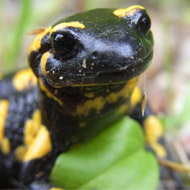New Caudata rules set to come into force in July

Bsal has been detected in different species of salamander across the UK, both kept as pets and in the wild.
New rules on the import of Caudata amphibians are to be implemented across the UK following a decision by the European Commission.
The new rules come into force on the 1 July, 2018 and seek to prevent the spread of the fungal pathogen Batrachochytrium salamandrivorans (Bsal) amongst newts and salamanders.
According to the European Food Safety Authority, Bsal has been detected in different species of salamander across the UK, both kept as pets and in the wild. Cases have been reported in Germany, Belgium, Spain, the Netherlands and the UK. In some salamander species, Bsal has been shown to cause high mortality.
The Ornamental Aquatic Trade Association (OATA) has urged anyone involved in the import, export or sale of Caudata species to familiarise themselves with the new rules and to ensure any animals they buy and sell conform.
The rules cover the whole of the UK and, to import Caudata or move between EU countries, individuals must:
- use the custom code 0106900000
- have the appropriate health certificates
- pre-notify APHA of non-EU imports (CVED) or FHI for EU imports (BSAL2). They will also need to do this if they wish to export Caudata to the EU or if the import is from outside the EU
- quarantine animals at a Fish Health Inspectorate (FHI) registered appropriate establishment and get a written authorisation from them for release once the animals have completed the quarantine period.
Further information can be obtained from the Fish Health Inspectorate: fhi@cefas.co.uk



 The veterinary mental health charity Vetlife is inviting the veterinary community to join it for a sponsored cold-water dip.
The veterinary mental health charity Vetlife is inviting the veterinary community to join it for a sponsored cold-water dip.